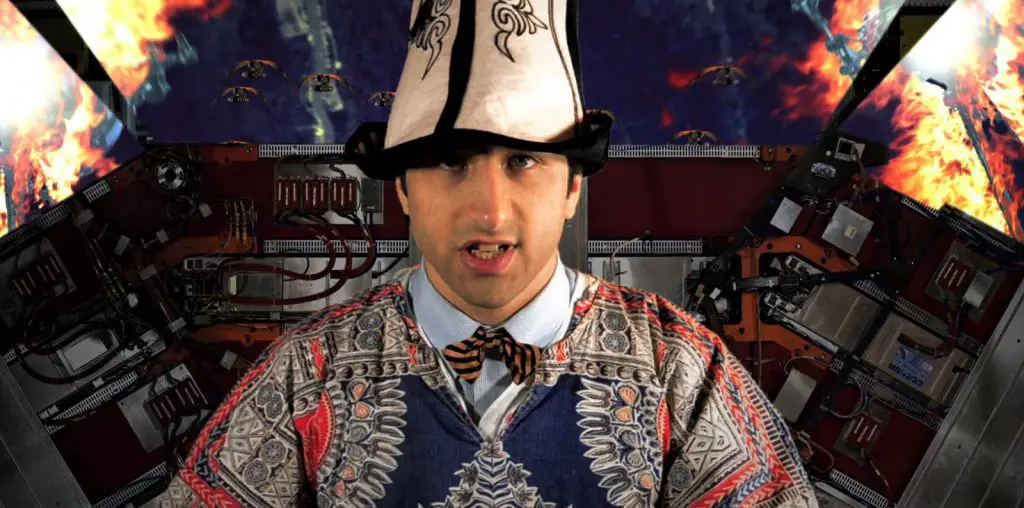
Inside a tiny upstairs theater within the Rafael Film Center, in San Rafael, California, Stone Reader, the stirring new documentary film by Mark Moskowitz, has just come spinning to its bittersweet close. As the credits roll, Lorna Landvik – author, actress, occasional moviegoer and devoted book club member – rises to her feet to honor the film with her own one-woman standing ovation. Of course, there are only three of us in the theater this morning: Landvik, myself, and Delores, a hired Literary Escort who is now gentling hustling Landvik from the theater – this was a private screening courtesy of the cool folks at the Rafael – and off to a bookstore appearance some ten miles away. “What a great movie!” enthuses the Minneapolis-based Landvik, as she scoots through the door and is gone.
Three hours later, after the well-attended bookstore gig has ended, Landvik and I, and Delores, who, incidentally, also loved the movie, are reunited at a quiet restaurant, where we finally get to talk about Stone Reader.
A word-of-mouth hit at the recent Slamdance Film Festival, Moskowitz’s offbeat film is an homage, of sorts, to the power of reading and the mystery of writing. One writer in particular forms the mystery at the heart of the film. He is Dow Mossman, whose 1972 Vietnam-era novel The Stones of Summer, worked some major mojo on the then-young Moskowitz. Throughout the lazy-paced doc, Moskowitz attempts to locate the mysterious Mossman, who dropped out of sight after the novel emerged, and to learn why Mossman never published another book. Landvik, by contrast, has published numerous books, including bestsellers like Patty Jane’s House of Curl, The Lone Pine Polka, and her latest quirky epic, Angry Housewives Eating Bon Bons, about the salty female founders of a decades-old monthly book club.
Landvik found Stone Reader to be funny, suspenseful and intensely moving.
“I love the way it got me,” she says, sipping a diet Coke. “I love the way the movie immerses you, somewhat voyeuristically, into the world of people who always talk about books, book agents, editors, crazy literature professors, people from Iowa City. It was such a wonderful movie for me to see. I could have bathed in it, it was so warm and, um . . . “
She glances up at the waiter standing over us, ready to take our orders, so I never learn what word Landvik was searching for to follow “warm”, “comfy” perhaps, or simply “soapy.” After the waiter has receded into the woodwork, Landvik announces her newly acquired eagerness to explore Mossman’s long lost novel.
“I’d definitely read it,” she says. “If I could find it. When I first heard about this movie, I went to my library and typed in the name Dow Mossman – What kind of name is Dow? – but nothing came up. Maybe I’ll just have to find a copy at a church garage sale or something.
“It’s a great mystery to me,” she goes on, “why one book takes off and another other doesn’t, or why one movie succeeds and another disappears before you know it was even out. There’s some kind of serendipity at work, when everything lines up properly. I wish I knew what it was, ‘cause then I’d be a heck of a lot more successful!”
In the film, Moskowitz reveals that his love of literature began when, as a teenager, he read Arthur Heller’s Catch –22, a book so subversive and exciting that he suddenly wanted to read everything else in sight.
“What was your Catch 22?” I ask Landvik. Without a second’s pause, she replies.
“To Kill a Mockingbird, in the 8th grade, when I was a wild little dork. I was a very self-absorbed kid, and then I read To Kill a Mockingbird, by Harper Lee. It was so good, and it had everything in it. It took me to a different world I couldn’t ever have imagined. After that, I was hooked on books. To Kill a Mockingbird knocked me out of the silly little eight-gradedness that was my life.”
With a feisty roll of her eyes, she tells of the time she visited a major chain bookstore, and was appalled when a counterperson took to the PA system to ask, “Does anyone know if we have the book How to Kill a Mockingbird?”
To Kill a Mockingbird, of course, was the one-and-only book that Harper Lee has ever written. Like Mossman’s forgotten novel, Lee’s masterpiece was a “one-and-done” effort.
“There are those writers who, for whatever reason, only have one book in them,” notes Landvik. “Fortunately, that’s just how I’m wired up. I can’t wait to get into my next novel, because I can’t wait to see who I’ll meet and what will happen.”
In Angry Housevives, which introduces each chapter with the title of the book being read that month, which character recommended it, and why, Landvik taps into the whole Book Club phenomenon that has become a niche market of the publishing industry.
“Book clubs have always been around,” she says, “but they’ve never been as big as they are now. I’ve always heard about so-and-so’s great Aunt whose book club is reading the classics. Now you’re never in a group of ten people without at least one of them saying, ‘Oh, my book club is reading blah-blah-blah.’ I’m in two different book groups, myself.”
“In the movie,” I mention, “Moskowitz keeps stating that he’d like to see Stones of Summer be reissued. Would any of your book groups ever read a book like that?”
“Oh, absolutely,” she says. “If it ever does get reissued, I’ll be the first one to suggest it to my book group. I’m sure there would be a lot to talk about, lots of questions.”
“Such as?”
“Well, for starters,” Landvik says, “I’d ask, ‘What kind of name is Dow, anyway?’”
____________________________________________________________
Writer David Templeton takes interesting people to the movies in his ongoing quest for the ultimate post-film conversation. This is not a review; rather, it’s a freewheeling, tangential discussion of art, alternative ideas, and popular culture.
Discuss David Templeton’s “Talking Pictures” column in Film Threat’s BACK TALK section! Click here>>>

